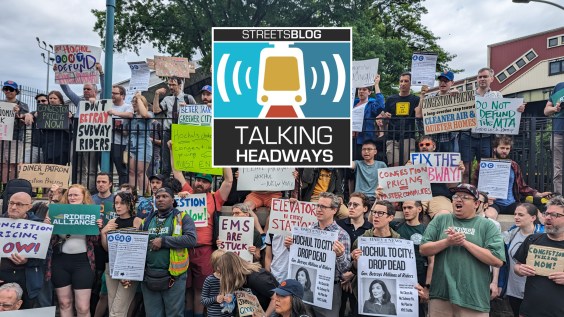Experts are still trying to make sense of President Obama's $50 billion plan for infrastructure spending, announced on Labor Day and later characterized as an upfront investment on a larger, multi-year transportation bill. More than a hundred people gathered at the Brookings Institution last Thursday looking to learn more about where the administration and Congress might go from here.
“First and foremost is how does all this dovetail with the reauthorization of the multi-year surface transportation law that now expires at the end of this year?” asked moderator Rob Puentes of Brookings' Metropolitan Policy Program, laying out the unknowns. “The President called for $50 billion. Is that just for an infrastructure bank? Is that the front-loaded part of this multi-year law? Is it both?”
The panel didn't have answers to every question, but a few themes emerged. First, enthusiasm for a national infrastructure bank is strong among the transportation reform community, which sees it as a vehicle not only to jumpstart investment, but to select projects based on merit and strategic goals like economic competitiveness and reducing carbon emissions.

The second is that administration officials are still fine-tuning the policies and programs they want to see in the next transportation bill. Polly Trottenberg, assistant secretary for transportation policy at U.S. DOT, said she wants to adjust the way her agency distributes competitive grants. She called the TIGER program too reactive -- letting states and regions propose isolated projects and then choosing the best among them. She’d rather have more latitude to help regions start broad new reforms. DOT, she said, is looking to the administration's education grants program, Race to the Top, for inspiration. They’re tentatively calling the transpo version “Wheel in the Sky” (yes – like the Journey song) but Trottenberg didn't seem to think that name would stick.
As for that 800-pound gorilla… the question of financing the transportation program is still, well, a question. Rep. Rosa DeLauro (D-CT) suggested that some form of user fees, whether congestion pricing or mileage taxes, would be necessary -- and politically feasible if the public sees that the money will be well-spent. “It is the public understanding of this which will help to bring the politicians along as well,” DeLauro said. “We need real public education on this issue of what infrastructure means to you personally.”
To make her point, she looked to the Los Angeles transit funding ballot measure known as Measure R, which voters passed in 2008. “The Mayor of Los Angeles went to the public,” she said. “The people of Los Angeles said yes, they were willing to spend a half-cent more on a sales tax in order to get the benefit of this very visionary transit system.”
Every panelist agreed that the administration is going to have to sell its infrastructure program as a wise investment, no matter what. Said Michael Greenstone of Brookings’ Hamilton Project, “If there’s greater confidence that the money is being spent on the high-payoff projects, I think that would loosen some of the political support for funding these.”





